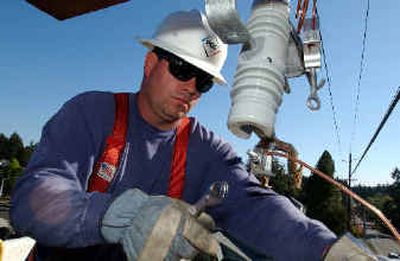Enron bankruptcy plan OK’d

HOUSTON — Enron Corp.’s plan to emerge from one of the most expensive and complicated bankruptcies in history — and to sell off most of its remaining pieces — received court approval Thursday. The Enron name will disappear and most creditors will receive about 20 cents on the dollar.
If pending sales of domestic pipelines and a Pacific Northwest utility close as expected later this year, all that will be left of the scandal-ridden company that once claimed $100 billion in revenues and pioneered trading operations that expanded well beyond energy will be a smattering of pipeline and power assets in 14 countries.
“This is what’s left of what had been a $65 billion asset company,” said John Olson, a Sanders Morris Harris analyst who has followed Enron since its inception in 1985.
U.S. Bankruptcy Judge Arthur Gonzalez in New York signed off on Enron’s plan to exit Chapter 11 bankruptcy protection Thursday with no notable adjustments.
Houston-based Enron filed for bankruptcy protection in December 2001 amid revelations of hidden debt and inflated profits accomplished through a tangle of accounting trickery. Thousands of workers lost their jobs and investors lost billions as the company’s stock, once a high-flyer, become worthless.
The reorganization plan aims to pay most of the more than 20,000 creditors about $12 billion of the approximately $63 billion they are owed with cash raised, mostly from a series of asset sales, and with stock in one of three new companies created from Enron’s remains under the reorganization.
A date for the plan to become effective — meaning Enron can begin distributing cash and stock — has not been set.
Shareholders will get nothing. And employees who lost their savings wrapped up in Enron stock are relying on lawsuits to get some payback.
The assets that didn’t evaporate are: CrossCountry Energy Corp., which holds Enron’s whole or part interest in three domestic natural gas pipelines; Portland General Electric, a utility; and Prisma Energy International Inc., the collection of international assets, most of which are in Latin America.
If sales of CrossCountry and Portland General close later this year, Enron will distribute a total of about $12 billion to creditors.